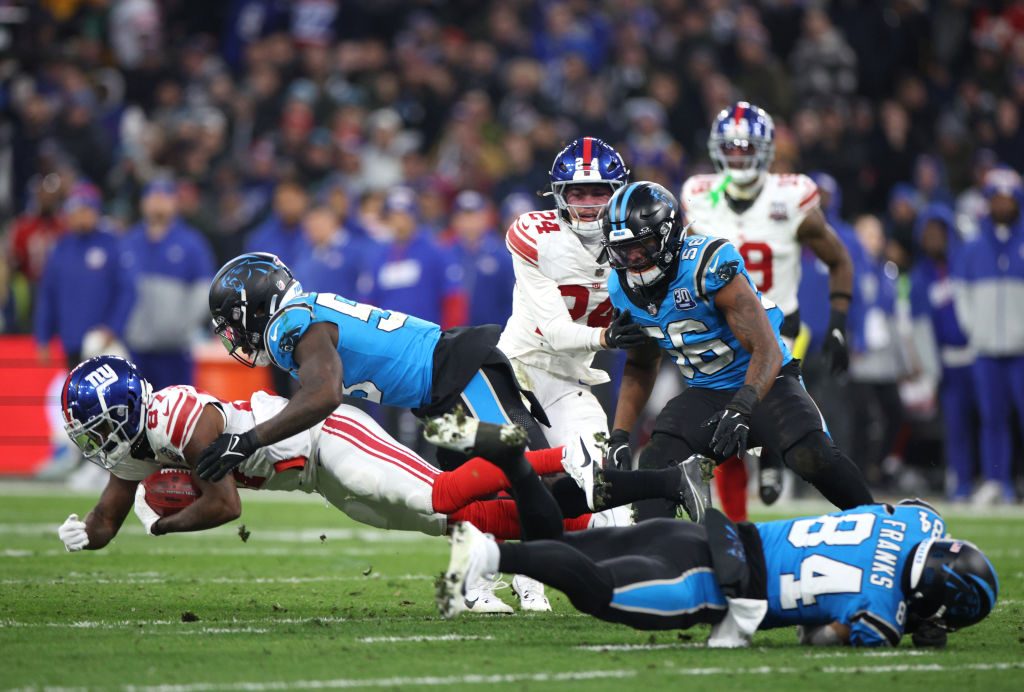Americans have turned against sports betting with remarkable speed. According to new Pew polling, 43% now view widespread legal sports gambling as harmful to society, compared to 34% just three years ago. The shift among young men has been even more dramatic: in 2022, only 22% of men under 30 held negative views about legal sports betting, a figure which has now climbed to 47%.
These numbers point toward a similar pattern that preceded alcohol prohibition a century ago. In the decades leading up to the ratification of the booze-banning Eighteenth Amendment to the US Constitution in 1919, a critical mass of Americans watched saloons destroy families and decided they’d had enough. Working-class men were drinking away their meagre wages while wives were abused, shifts at the factory were abandoned, and children went hungry.
The parallels to today’s gambling epidemic are unmistakeable, except the smartphone makes the saloon, many of which were closed at least part of each day, look quaint by comparison. Americans wagered just under $150 billion on sports in 2024 alone. Nearly 60% of university students have placed sports bets, and 6% have lost more than $500 in a single day. What’s more, industry advertising is targeted at young people through TikTok and other platforms where they’re most vulnerable.
I recently spoke with an acquaintance who works in product marketing for one of the largest betting apps. His entire department exists to maximise what the industry calls “time on app” — an evolution of “time on machine” identified in Natasha Dow Schüll’s Addiction by Design as the key metric for Las Vegas casinos in engineering machines to induce a trancelike state where gamblers lose awareness of time, money, and physical discomfort. App developers have taken every technique Vegas perfected and removed remaining points of friction, such as the need to leave your house and the addition of intrusive notifications that present you with special offers when you haven’t placed a bet for a few hours.
The political dynamics here should favour prohibition, yet neither main US party seems remotely interested. Republicans control states where traditional values supposedly matter, and Democrats position themselves as defenders of the vulnerable against predatory capitalism. Even in a highly polarised political climate, in which one key issue could swing a few races, neither shows much inclination to take action.
Las Vegas offers an obvious example of why Republicans should care. The city has been a GOP stronghold for years, serving as home base for key Trump allies such the Adelson family’s casinos and mixed martial arts promoter Dana White’s sports betting-reliant UFC. Yet Vegas is haemorrhaging revenue as online betting cannibalises traditional gambling. Strip revenue dropped nearly 4% in May, marking the fourth consecutive monthly decline. Visitor volume has fallen 6.5% each year, a loss of more than 1.1 million people. Texas Republicans recently wrote a letter opposing gambling expansion and sportsbook legalisation in their own state, but they’re stuck playing defence rather than going on the offensive.
Democrats have been largely passive, too. To their credit, earlier this year Senator Richard Blumenthal and Representative Paul Tonko reintroduced the SAFE Bet Act, which would establish federal standards for sports betting. The bill would prohibit advertising during live games and eliminate bonus bet promotions. However, these measures treat sports betting like cigarettes in the Eighties and Nineties before the big push to drive them from the public square — something to be managed rather than made prohibitively expensive and nearly eliminated.
Trump’s recent tax bill, currently stalled amid a government shutdown, has stumbled towards a solution. Senate Republicans inserted a provision limiting gambling loss deductions to 90%, which creates situations where gamblers will owe taxes on money they never actually possessed. Nevada Democrats are scrambling to reverse this change, since it will also affect in-person business, but Republicans could consider going further now that Trump has provided an opening. Tax sports betting at punitive rates, and then ban it outright save for a handful of sportsbook operations that require physical visits, as was the case in Nevada prior to the Supreme Court’s 2018 overturning of the Professional and Amateur Sports Protection Act of 1992.
The template for this kind of political reversal already exists. For decades, both parties embraced Nafta-style free trade while manufacturing jobs disappeared and entire regions collapsed. Trump won the presidency twice by promising tariffs on cheap Chinese goods and other predatorily-priced imported “treats”. He recognised that protectionism wasn’t politically impossible, only that politicians hadn’t caught up to where voters had already moved.
This new Pew data suggests the same dynamic now exists with sports betting. The voters know this is not sustainable, and a canny populist will eventually dangle promises of prohibition. Republicans have given themselves a head start with the Big Beautiful Bill’s proposed gambling tax reform, but the question still remains as to which party will fully exploit this golden opportunity.











Join the discussion
Join like minded readers that support our journalism by becoming a paid subscriber
To join the discussion in the comments, become a paid subscriber.
Join like minded readers that support our journalism, read unlimited articles and enjoy other subscriber-only benefits.
Subscribe